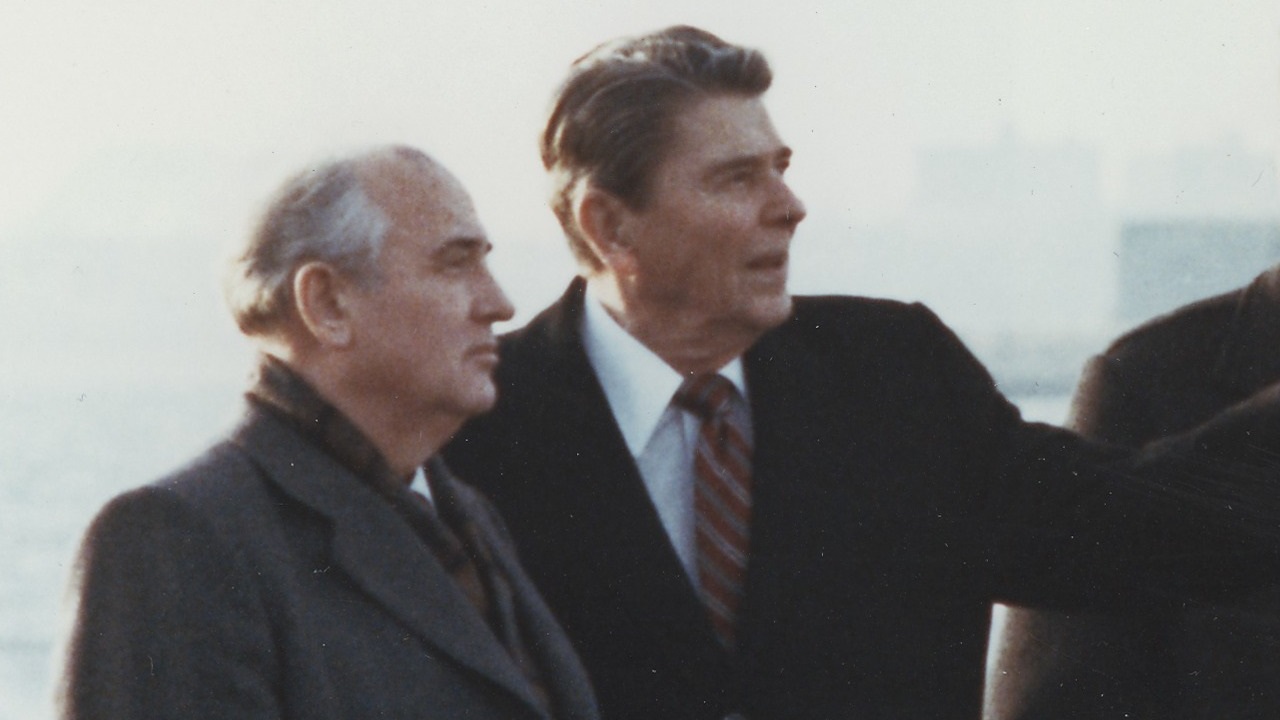I still vividly remember the skepticism, surprise, and disbelief with which Sovietologists watched Mikhail Gorbachev in the second half of the 1980s. Skepticism that he was truly the radical reformer he claimed to be in 1985-1986. Surprise at the breathtaking changes he introduced under the guise of glasnost and perestroika in 1987-1988, and disbelief that he was abandoning the East European Communist regimes in 1989 and leading the Soviet Union toward dissolution in 1990-1991.
The USSR had experienced radical reform in the past—in the 1920s after Lenin’s death and in the 1950s after Stalin’s—but both times the Party elites feared that change would destabilize the system and cracked down. In contrast, Gorbachev pushed reform as far as it could go, with the result that communism collapsed and the Soviet empire ceased to exist. He didn’t want the USSR to be relegated to, as Soviet propagandists used to say, the “ash heap of history,” but once he attacked the Communist Party apparatus and enabled other parties to compete, the Party lost its ability to hold the country together and the non-Russians took advantage of the chaos in the center to promote their sovereignty and independence. The failed putsch by hardline apparatchiks in mid-1991 proved to be the straw that broke the camel’s back.
Most Russians came to despise Gorbachev for losing the empire and the state, but he remained wildly popular in the rest of the world, showing that even people raised in the Russian Communist tradition could be enlightened, modern, and liberal. Gorbachev failed to reform the USSR. But he did so much more that has earned him a permanent positive place in history: he dismantled totalitarianism, reined in the secret police, freed political prisoners, gave people and countries a voice, and significantly reduced tensions with the West. We lived in a better world for one decade thanks to him.
Until Vladimir Putin came along and, exploiting popular disillusionment and economic pain, replaced Russia’s incipient democracy with fascism, reinstated the secret police, killed political opponents, deprived people and countries of a voice, significantly increased tensions with the West—and started a genocidal war in Ukraine. Putin destroyed Gorbachev’s achievements while at the same time manipulating them in such a way as to persuade Russians that his policies were superior to Gorbachev’s. Although Gorbachev did not publicly comment on the war, he told the journalist Alexei Venediktov that he was “upset” over Putin’s policies. “’Gorbachev’s reforms – political, not economic – were all destroyed,’ Venediktov said.’Nilch, zero, ashes.’”
Putin is Russia’s anti-Gorbachev, in terms both of personality and politics. Putin is a thug; Gorbachev was a gentleman. Putin is an imperialist and fascist; Gorbachev gave freedom to scores of nations and struggled to build a democracy.
(Sign Up for Our Daily Newsletter here.)
Ironically, Putin is well on the way to reducing his empire to “nilch, zero, ashes.” The invasion of Ukraine is a strategic blunder of world-historical proportions, one that has mortally weakened Putin’s realm, regime, and himself. In an eerie replay of the late 1980s, Putin’s two decades of anti-reforms have been met with skepticism, surprise, and disbelief in the West. Skepticism that he was serious about dismantling democracy. Surprise at the stupidity of his invasion. And disbelief that he was consciously leading the Russian Federation toward an ignominious end.
Gorbachev will be missed by millions. Fittingly, Putin’s demise will be cheered by millions.
Expert Biography: Now a 1945 Contributing Editor, Dr. Alexander Motyl is a professor of political science at Rutgers-Newark. A specialist on Ukraine, Russia, and the USSR, and on nationalism, revolutions, empires, and theory, he is the author of 10 books of nonfiction, including Pidsumky imperii (2009); Puti imperii (2004); Imperial Ends: The Decay, Collapse, and Revival of Empires (2001); Revolutions, Nations, Empires: Conceptual Limits and Theoretical Possibilities (1999); Dilemmas of Independence: Ukraine after Totalitarianism (1993); and The Turn to the Right: The Ideological Origins and Development of Ukrainian Nationalism, 1919–1929 (1980); the editor of 15 volumes, including The Encyclopedia of Nationalism (2000) and The Holodomor Reader (2012); and a contributor of dozens of articles to academic and policy journals, newspaper op-ed pages, and magazines. He also has a weekly blog, “Ukraine’s Orange Blues.”

